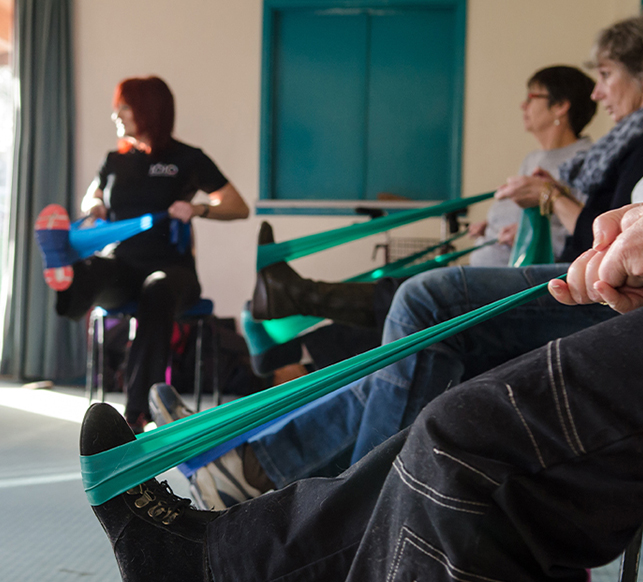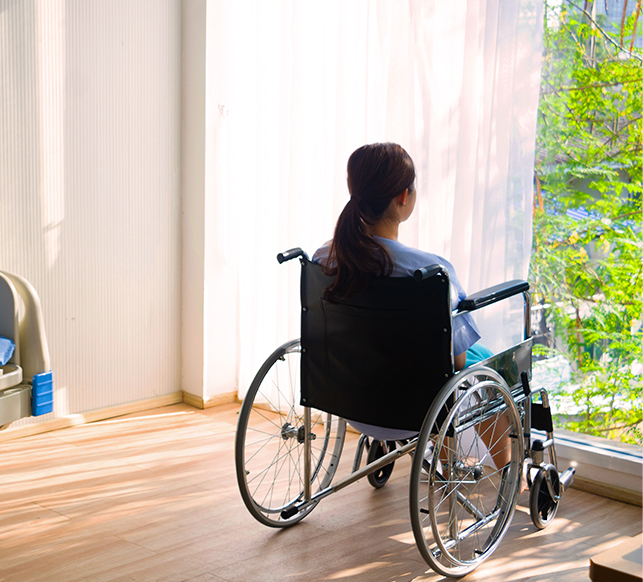Multiple sclerosis

Multiple sclerosis (often referred to as just MS) affects both the brain and spinal cord
The condition affects everyone differently, with some people only experiencing mild symptoms, while for others, the symptoms are extreme. The life expectancy for sufferers of MS is around the same as people without the condition, although it may be slightly less in some cases. It is more common in women and it can be apparent at any age, although it is most common better 20 and 30. Young adults often suffer from MS.
Multiple sclerosis symptoms
Other issues which may be experienced by someone with MS, include vision problems. Suffering with blurred vision is a common side effect of the condition. There may be issues controlling the bladder for an individual with MS, and muscle stiffness is also fairly common. Balance and coordination may also prove challenging for someone with the condition. Those with MS may find that the symptoms never go away, or they might come and go. They can also get worse over time.

Cause of multiple sclerosis
Our multiple sclerosis care services for our clients
Our carers receive the highest form of nurse-led clinical training to ensure they can provide a quality care service to our clients receiving bariatric care. Working alongside other local authorities, they deliver a service in the comfort of the individual’s home, ensuring they are as comfortable as possible. They will also provide support and advice to families dealing with multiple sclerosis, helping to comfort them where required.
Some of the services our carers provide at Harmony Healthcare, include
Administering medication
Our carers can administer the medication you need in the comfort of your home. They will ensure you receive the right level of medication at the right time to help ensure your optimum health and wellbeing.
Medical support
Our carers are able to provide some medical support as required, such as catheter care.
Personal care
In some cases, personal care may be required. The carers will ensure they provide this in a caring, sensitive and empathetic way.
Mobility support
If you need help around the house with your mobility, our carers can offer this too, ensuring you stay safe at all times.
Shopping
If you require some help with your shopping, or you need someone to do this for you, our carers can also provide this, including collecting your prescriptions and shopping.
General Housekeeping
Our carers will also prepare meals and carry out regular housekeeping around the home, including dishes, preparing meals and laundry.
Emotional Support
You may feel that you have no one to talk to or to turn to for support. Sometimes it is better to speak to someone who is impartial, and our carers are happy to offer that emotional support you need too.
Case study for client with multiple sclerosis
Mary is 52 and has been living with multiple sclerosis since her mid 30’s. She lives independently, but has noticed her symptoms getting worse. Her vision is quite poor and she’s finding issues with her balance. Mary feels particularly frightened during the night, especially when she goes to the toilet. She is concerned that she will fall, and as she lives alone, no one would be there to help her. This causes her great distress and difficulties sleeping. She can’t ask family to help as they all work full time, and he does not want to cause them hassle, or make them feel that they need to do this for her. She knows it’s a burden. Mary called us up and advised on the situation. We assessed her and her needs, and tailored a care plan to suit her. This mainly involved providing overnight care, but also with the option for additional care services when she needed them. We advised her that she could call upon us at any time if she needed our emergency care services. This instantly made Mary feel better about her situation. Not only did she feel that she would be in safe hands during the night, it also allowed her to have a peaceful rest. She was also thankful for not having to involve her family in the situation, which took that additional worry off her shoulders. Mary enjoys having the carer around.